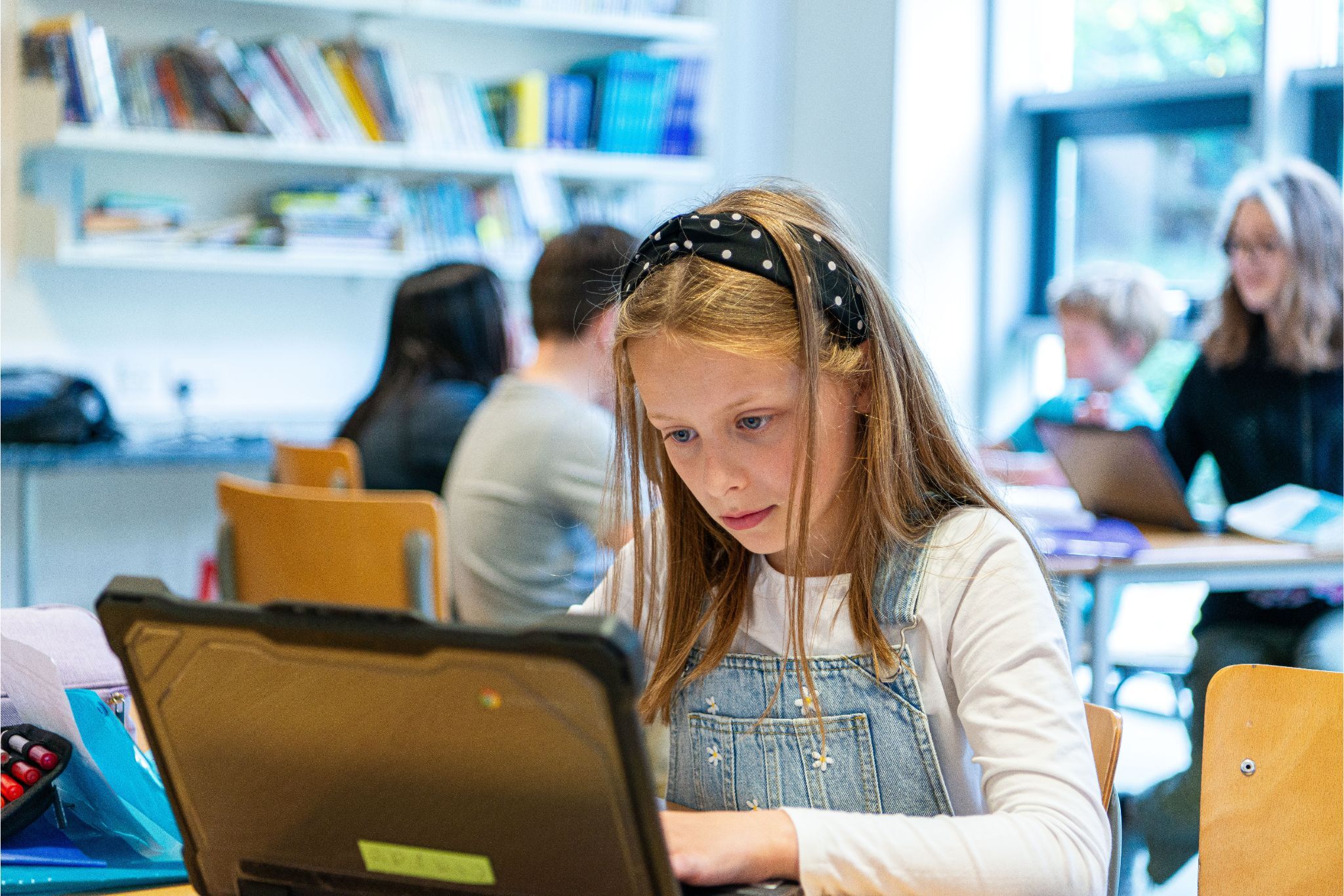
AI in the Classroom: Our Vision for an Inclusive and Innovative Future
Gayle Veitch, IT Director.
At ISA we are excited that artificial intelligence is becoming more a part of everyday life and the opportunities this affords us.
It is, therefore, imperative that educators don’t shy away from AI but rather evolve their practices to embrace its opportunities and teach young people the boundaries, confidence and respect that are needed to correctly explore capabilities – as well as inspiring them about the exciting possibilities it unleashes both now and in their future lives.
The United Nations Educational, Scientific and Cultural Organization (UNESCO) unique mandate puts it as calling for: “a human-centred approach to AI. It aims to shift the conversation to include AI’s role in addressing current inequalities regarding access to knowledge, research and the diversity of cultural expressions and to ensure AI does not widen the technological divides within and between countries. The promise of “AI for all” must be that everyone can take advantage of the technological revolution under way and access its fruits, notably in terms of innovation and knowledge.” (https://www.unesco.org/en/digital-education/artificial-intelligence)
UNESCO also says that: “general-purpose technologies are re-shaping the way we work, interact, and live. The world is set to change at a pace not seen since the deployment of the printing press six centuries ago. AI technology brings major benefits in many areas, but without the ethical guardrails, it risks reproducing real world biases and discrimination, fuelling divisions and threatening fundamental human rights and freedoms.” (https://www.unesco.org/en/artificial-intelligence)
It is for these reasons that I led the creation of a Strategic Initiative Group to investigate ISA’s AI policy. A cross section of staff across the school met this year to consider how we should amend existing school policies to address the availability of various AI chatbots and apps. As a result, we have created guidelines for staff students and parents, as well as starting an AI tools directory as a handy resource for use within ISA.
Alongside this we explored ways to work with students to develop a shared understanding of how to use AI in a way that aligns with our school values. Additionally, ISA hosted a Google for Education Summit with a focus on artificial intelligence, showcasing uses and providing a space to discuss implications. Keynote speaker Bukky Yusaf set the tone, reminding delegates that AI is not a new concept, but demonstrating the rapid development over the past few years. The event included a series of training workshops for teachers on new features and functionalities of Google’s tools for education. Through interactive workshop sessions, teachers from ISA and across Scotland were able to explore the new features on their own devices and learn new strategies to help streamline their workload.
Today, we can see just how far the technology has come, sharpening the need for meaningful usage to be learned early. It is, therefore, incumbent upon education settings to step up and support our young people in exploring AI safely and appropriately. At ISA we are embracing the opportunities to use these developing tools in the classroom with our students, enhancing their daily learning experience.




